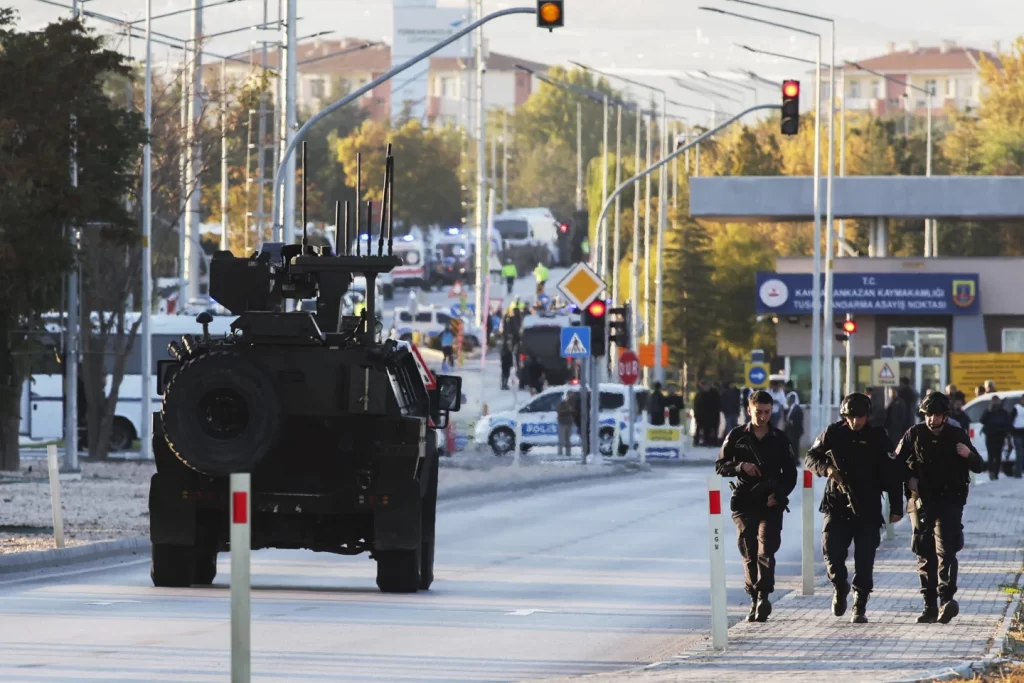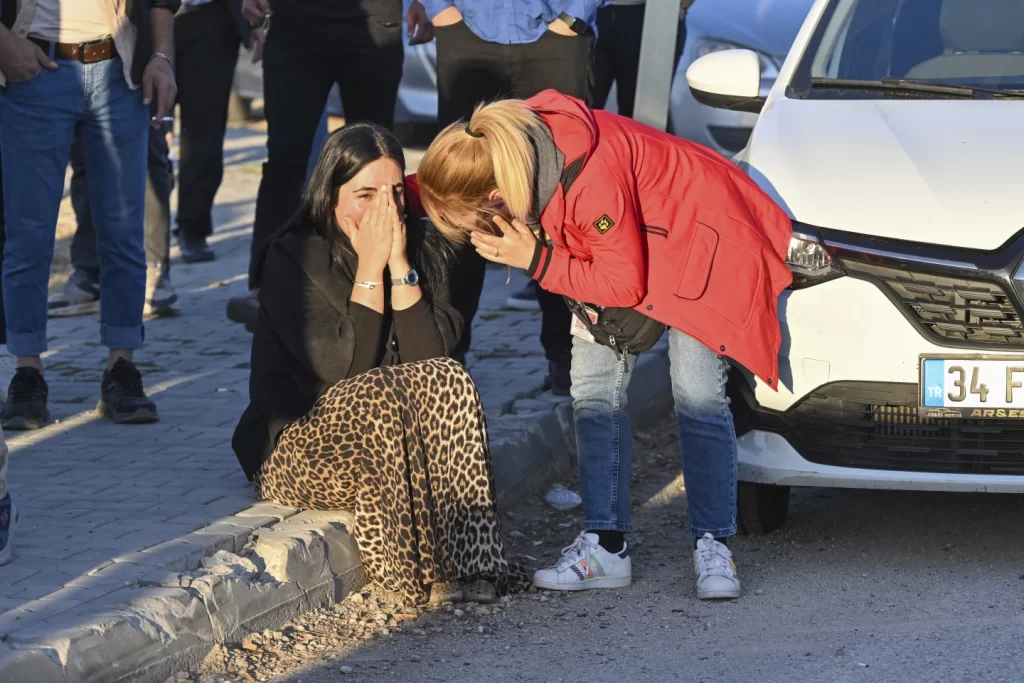Turkish forces intensified their military response Thursday with a new wave of strikes against Kurdish militant targets in Syria and Iraq, following Wednesday’s deadly attack on a defense facility that killed five people in Ankara.

The National Intelligence Organization targeted what officials called “strategic locations” used by the Kurdistan Workers’ Party (PKK) and affiliated Syrian Kurdish militia, employing armed drones to hit military, intelligence, energy, and infrastructure facilities, according to state-run Anadolu Agency.
Defense Minister Yasar Guler reported that Wednesday’s initial response destroyed 47 alleged PKK targets — 29 in Iraq and 18 in Syria. “Our noble nation should rest assured that we will continue with increasing determination our struggle to eliminate the evil forces that threaten the security and peace of our country and people, until the last terrorist disappears from this geography,” Guler declared.
The escalation follows Tuesday’s attack on TUSAS, Turkey’s premier aerospace and defense company, where two assailants — after killing a taxi driver and commandeering his vehicle — launched an assault using explosives and gunfire, killing four people including a security guard and a mechanical engineer. More than 20 others were wounded before the attackers were killed.

The Kurdish-led Syrian Democratic Forces reported that Turkish strikes in northern Syria killed 12 civilians and wounded 25, with warplanes and drones targeting essential infrastructure including bakeries, power stations, oil facilities, and police checkpoints.
The military response coincides with significant political developments regarding the PKK conflict. Just before the TUSAS attack, a key ally of President Recep Tayyip Erdogan had suggested the possibility of parole for imprisoned PKK leader Abdullah Ocalan if he renounced violence and disbanded his organization.
In a related development, Ocalan’s nephew, Omer Ocalan, announced the imprisoned leader received his first family visit since March 2020. Through his nephew, a lawmaker from Turkey’s pro-Kurdish party, Ocalan expressed willingness to help end the conflict “if the conditions are right,” saying he possessed “the theoretical and practical power to transform this process from one grounded in conflict and violence to one that is grounded on law and politics.”
TUSAS, whose defense systems have proved crucial in Turkey’s fight against Kurdish militants, manufactures civilian and military aircraft, unmanned aerial vehicles, and other defense systems. The PKK, designated as a terrorist organization by Turkey and its Western allies, has fought for Kurdish autonomy in southeast Turkey since the 1980s in a conflict that has claimed tens of thousands of lives.



